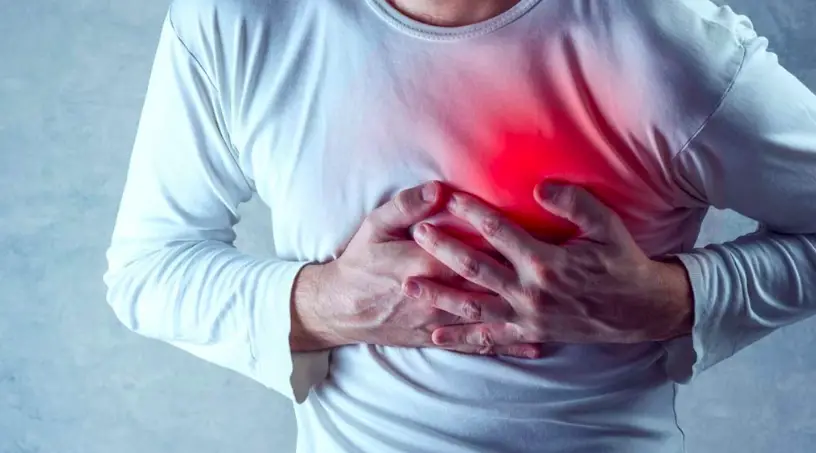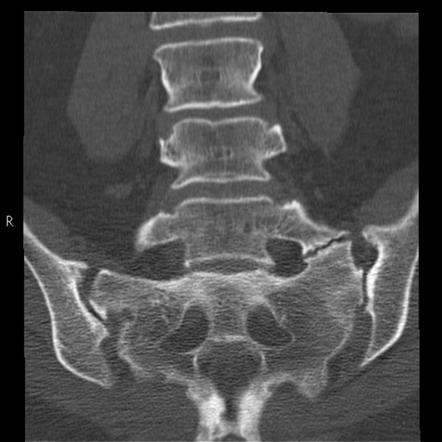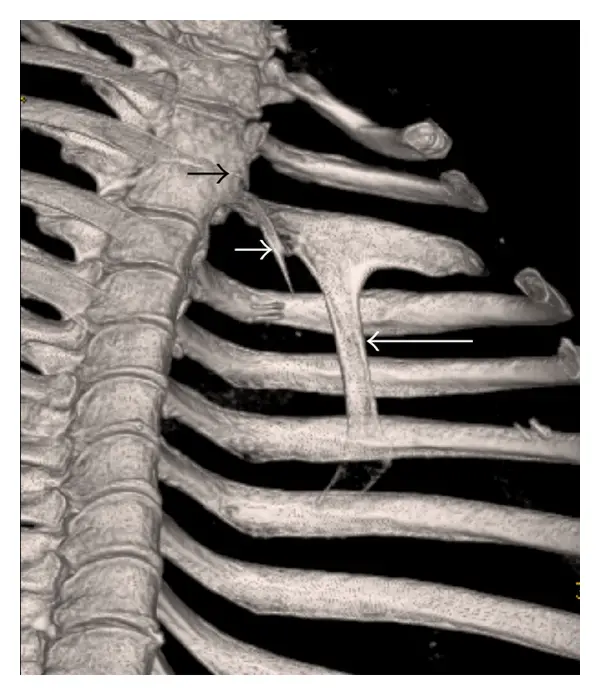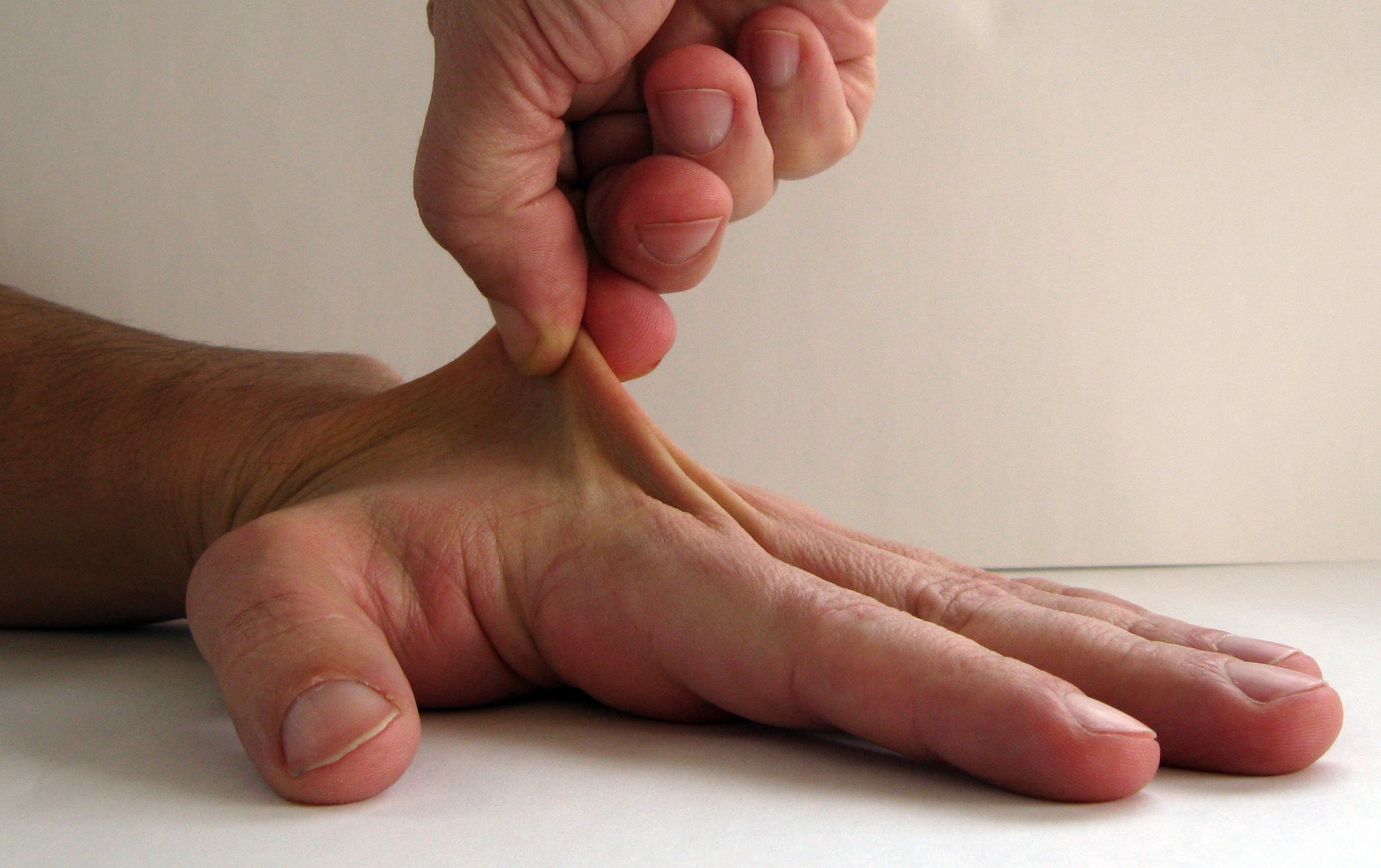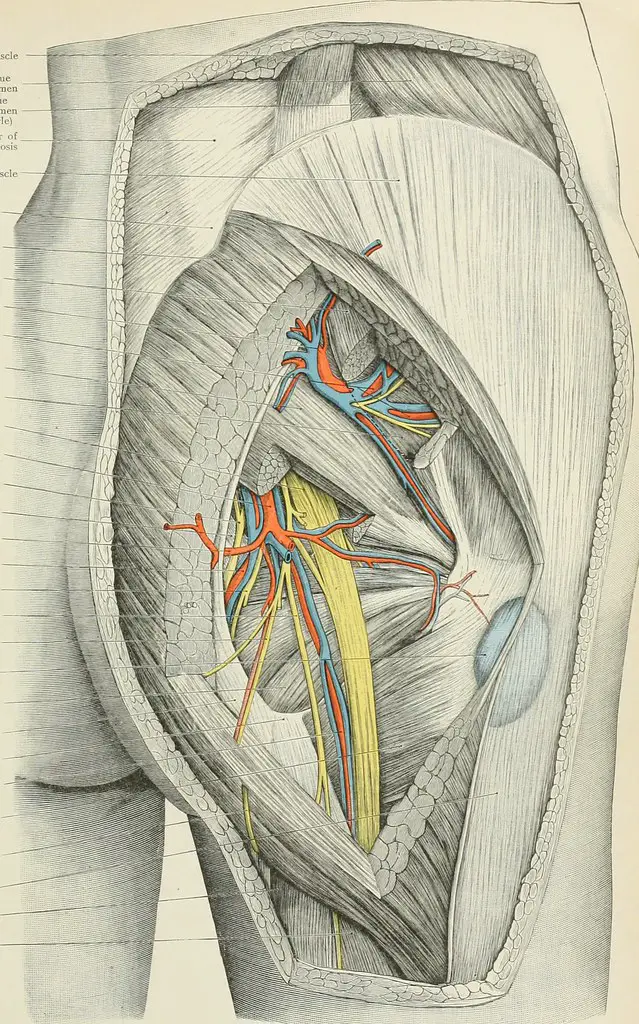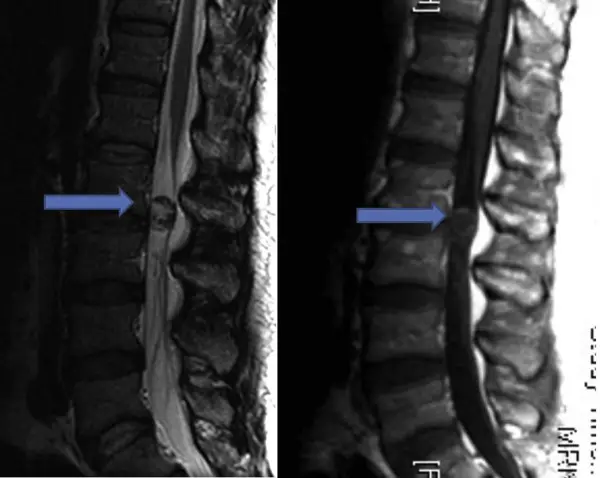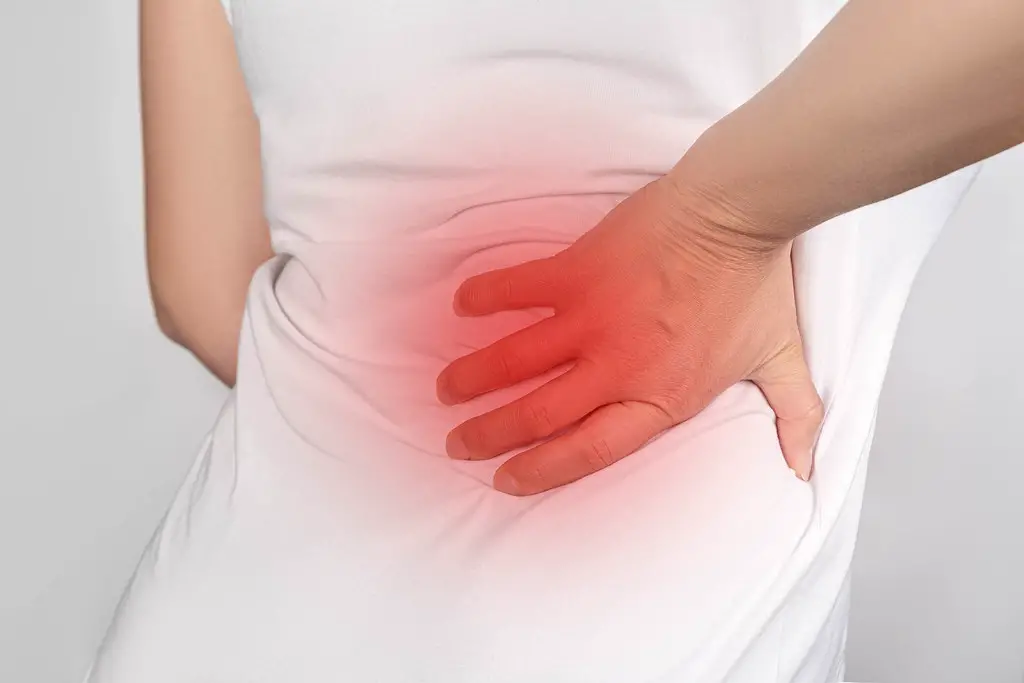Le Roemheld's syndrome, also called gastro-cardiac syndrome, is defined by the occurrence of cardiac manifestations (rhythm disorders, shortness of breath) caused by certain digestive conditions. It's actually a compression of the heart or vagus nerve by the digestive viscera (generally swollen by an excess of gas) which induces this cardiac symptomatology.
Its management is largely based on the treatment of the underlying digestive pathology (if it exists) and the implementation of a certain number of lifestyle and dietary measures. We take stock of this syndrome in this article.
What is Roemheld syndrome?
Le Roemheld's syndrome, or gastro-cardiac, is a set of cardiac symptoms whose origin is digestive. Thus, patients suffering from pathologies of the gastrointestinal tract with the accumulation of gas in the abdomen develop such cardiac manifestations as arrhythmias (heart rhythm disturbances) or palpitations.
How does Roemheld syndrome manifest?
Le gastro-cardiac syndrome can be manifested by different clinical pictures from one individual to another. The most common symptoms reported by people with this syndrome are:
- Personalized digestive symptoms : bloating or intestinal gas, flatulence, feeling of heaviness or general malaise after meals, transit disorders (diarrhea, constipation or alternation of the two), nausea, belching, etc.
- Personalized palpitations: it is a situation in which a person becomes aware, in a generally unpleasant and distressing way, of his own heartbeat. It is a very important symptom during the gastro-cardiac syndrome, because it can be the sign of a heart rhythm disorder (arrhythmia) such as extrasystoles.
- From the almost complete tachycardia: i.e. an increase in heart rate (over 100 heart beats per minute).
- Personalized pain thoracic: similar to those of angina or angina pectoris.
- A difficulty in breathing: the person becomes aware of his breathing, whereas it is supposed to be an automatic or unconscious phenomenon. Sometimes, we even observe a real dyspnea with shortness of breath during efforts of varying intensity.
- A feeling ofchest tightness.
- Other symptoms such asanxiety, dizziness, hot flashesr, of the fatigue, sleeping troubles, sometimes fainting (temporary loss of consciousness)…
What are the causes of gastrocardiac syndrome?
The mechanism of gastro-cardiac syndrome has been identified: the digestive organs (stomach, small intestine, colon), where there is an accumulation of gas (which may be due to aerophagia or fermentation at the digestive level), compress the heart through the diaphragm (more precisely the left diaphragmatic dome). This triggers the cardiac symptoms previously described (arrhythmias, palpitations, etc.).
This compression can also affect the vagus nerve (also called pneumogastric nerve or nerve X) which is part of the autonomic nervous system, therefore having a direct influence on cardiac activity.
All digestive pathologies that can lead to cardiac or vagus nerve compression can therefore be involved in the Roemheld's syndrome. Here are the most frequently encountered:
- Diaphragmatic hernia: it is the passage of an organ from the abdominal cavity (stomach, intestine, liver) to the thoracic cavity through an orifice of the diaphragm. For example, a hiatal hernia is the passage into the thorax of part of the stomach through a natural orifice of the diaphragm (hiatal orifice).
- Functional colopathy: commonly called "irritable bowel", is accompanied by a number of digestive dysfunctions with generally the accumulation of gas.
- Food intolerances: such as lactose intolerance, celiac disease (gluten intolerance)… The ingestion of a non-tolerated food generally causes digestive disorders such as gas (with bloating, belching, flatulence) and transit disorders (diarrhea …).
- Crohn's disease et hemorrhagic recto-colitis (UCH): these are inflammatory bowel diseases (IBD). They are most often accompanied by an excess of gas which could, by compression of the heart or the vagus nerve by the swollen digestive hollow organs, cause heart rhythm disorders.
- Gastrointestinal infections: whether viral, bacterial, parasitic or due to fungi.
It should be known that the Roemheld's syndrome can be found in perfectly healthy people. It then occurs classically after taking too big meal, with significant formation of gas in the intestine.
But be careful, this diagnosis will only be retained by the doctor after having eliminated the other pathologies, in particular the absolute emergencies such asmyocardial infarction (WDI), acute heart failure, aortic dissection… Do not hesitate to consult a doctor if the symptoms described above appear.
How is gastrocardiac syndrome diagnosed?
As mentioned earlier in the article, Roemheld syndrome is a diagnosis of exclusion ou exclusion. That is, it is only placed after carefully ruling out other diseases that could be causing heart symptoms.
Thus, the doctor will carry out a rigorous questioning of the patient, a complete clinical examination emphasizing the cardio-pulmonary and digestive examination, then the possible prescription of one or more additional examinations such as:
- An electrocardiogram (ECG): systematically and quickly requested in order to eliminate an urgent pathology (myocardial infarction for example), especially in the event of chest pain.
- Blood tests.
- A Holter ECG (which is a 24 to 72 hour ECG recording) in order to highlight and characterize an arrhythmia.
- An echocardiogram.
- A scanner.
- Magnetic resonance imaging (MRI)
Once any cardiac pathology has been eliminated, the investigations continue and are oriented according to the clinical picture. Indeed, the coexistence of cardiac and digestive symptoms in a patient who does not present any anomaly in the heart strongly suggests the diagnosis of gastro-cardiac syndrome.
Exploration of the digestive system can then either reveal a pathology such as a diaphragmatic hernia or Crohn's disease for example, or find nothing, which points to functional colopathy or eating too large meals...
How is Roemheld syndrome treated?
The treatment of Roemheld syndrome is above all that of its etiology. In other words, the treatment of the causal pathology allows the cure of this syndrome.
Thereby :
- Faced with a diaphragmatic hernia: surgery if necessary (according to specific indications).
- Faced with lactose intolerance: lactose-free diet (no milk and dairy products, etc.).
- Faced with celiac disease: gluten-free diet.
- In the face of gastroenteritis: antibiotic or other treatment depending on the causative agent.
- In the face of Crohn's disease or ulcerative colitis: surgery or medical treatment as appropriate.
- In the face of digestive neoplastic involvement: surgery, chemotherapy or radiotherapy or other treatment depending on the type of cancer.
- Etc ...
In all cases, compliance with a few lifestyle and dietary rules is of paramount importance in gastro-cardiac syndrome:
Changes in diet
Small changes in eating behavior can significantly reduce symptoms in Roemheld syndrome. Here are some simple rules to follow:
- Avoid overeating meals.
- Eat light in the evening.
- Eat slowly, taking the time to chew food well.
- Respect the regularity of meals (fixed time).
- Do not snack between meals.
- Stay hydrated throughout the day.
- Avoid processed foods (generally too fatty, too sweet and/or too salty).
- Prioritize the consumption of the following foods: lean meats (fish, turkey), vegetable or boiled soups, fruits and vegetables, herbal teas (fennel, ginger, cumin)
- Avoid or reduce the consumption of the following foods: soft drinks, alcoholic drinks, legumes such as beans and chickpeas, white and red cabbage, dried fruits, fatty meats, white sugar and all products that are too sweet, sweeteners, hot spices, fast food…
- Quit or reduce your tobacco use.
Sometimes it is possible to make predatory testing. That is to say remove a food from your diet for a few days (2 weeks on average) and note if there is a change in symptoms (gas, palpitations, etc.). The multiplication of this kind of tests over the months and years of coexistence with Roemheld syndrome will allow each person who suffers from it to create a personalized list of foods to avoid (and those authorized or preferred). Indeed, we are not all equal when it comes to gastro-cardiac syndrome!
Practice of regular physical activity
The practice of regular physical activity is one of the main pillars of iron health. It is particularly recommended in the context of gastro-cardiac syndrome, because it helps to strengthen the diaphragmatic muscle on the one hand, and to reduce stress and anxiety on the other.
The World Health Organization recommends a weekly minimum of 150 to 300 minutes of moderately intense physical activity, such as brisk walking, or 75 to 150 minutes of vigorous-intensity physical activity, running or the bicycle for example. Walking at least 30 minutes a day helps a lot to prevent a lot of health problems!
Stress management
All methods capable of reduce stress are welcome to relieve symptoms or prevent Roemheld syndrome. Here is a purely indicative list of some anti-stress methods to consider:
- Sophrology;
- La meditation ;
- Yoga;
- Acupuncture;
- Phytotherapy;
- La breathing ;
- Thalassotherapy…
What about natural remedies?
Although they are not supported by solid scientific evidence, several natural products and home remedies are used to treat various body pains, especially for their anti-inflammatory power.
Here is a non-exhaustive list of plants and essential oils that are effective in controlling pain and inflammation:
- Turmeric : Thanks to its antioxidant and anti-inflammatory powers very powerful, turmeric is one of the most used plants in a culinary and therapeutic context. The composition of turmeric is essentially made of essential oils, vitamins (B1, B2, B6, C, E, K) and trace elements. But it is to its composition rich in curcumin and curcuminoids that we owe them and calm skin of this spice.
- REASON TO CHOOSE OUR TURMERIC CAPSULES WITH GINGER AND BLACK PEPPER – Our complex turmeric…
- POWERFUL TURMERIC CAPSULES - Turmeric is an excellent source of Vitamin C, antioxidants,…
- IDEAL AND PRACTICAL FORMULA – The powders we use are delicately harvested,…
Last updated on 2024-04-23 / Affiliate links / Images from the Amazon Partners API
- Ginger : In addition to the special flavor it brings to the kitchen and its aphrodisiac properties, ginger is a root well known for its anti-inflammatory powers. THE gingerol gives it its anti-inflammatory action. It is an active component acting on the inflammatory pain related to chronic joint inflammatory diseases, including rheumatoid arthritis, lupus, rheumatic diseases, etc. It has been proven that this active element is also effective in acting on the inflammation linked to arthritis and sciatica. Ginger also has other benefits thanks to its high potassium content and its richness in trace elements (calcium, magnesium, phosphorus, sodium) and vitamins (provitamin and vitamin B9).
- 【Natural Ginger Foot Patches】: Natural Foot Detox Patch with Ginger and…
- 【Ginger Anti Swelling Detox Patch】: Ginger Detox Patches are natural,…
- 【Removes Body Toxins】: Ginger Foot Patches helps reduce the buildup of…
Last updated on 2024-04-23 / Affiliate links / Images from the Amazon Partners API
- Omega-3s : Omega-3 are polyunsaturated fatty acids that play a very important role in the functioning of our body. They are provided by food in three natural forms: docosahexaenoic acid (DHA), alpha linolenic acid (ALA) and eicosapentaenoic acid (EPA). Beyond their action on the brain and the cardiovascular system, omega-3s prove very effective against inflammation. Indeed, they have the ability to act on the inflammatory mechanisms in osteoarthritis by slowing down cartilage destruction, thus they reduce the intensity of osteoarthritis pain. Sciatica, being most often linked to an inflammation secondary to a herniated disc, it can also respond to omega-3 provided it is consumed regularly.
No product found.
- Lemon eucalyptus: Eucalyptus is a plant most often used in the form of herbal tea or essential oil. She would have anti-inflammatory effects which give it the ability to act on the bone and joint pain in general and the pain of sciatica in particular.
- Eucalyptus Citriodora Essential Oil.
- 100% pure.
- Botanical name: eucalyptus citriodo.
Last updated on 2024-04-23 / Affiliate links / Images from the Amazon Partners API
- wintergreen : Wintergreen is a shrub from which a very interesting essential oil is extracted. It is one of the most used essential oils in aromatherapy. This oil extracted from the shrub bearing the same name, is used in massage to relieve sciatica and act like a analgesic. Indeed, it provides a heating effect thanks to its ability toactivate blood circulation locally.
- PROPERTIES ORGANIC WINTERGOOD ESSENTIAL OIL: Wintergreen essential oil is…
- DIRECTIONS FOR USE: Refer to the instructions or ask your pharmacist for advice, This…
- PURESSENTIEL DNA: A range of 55 essential oils essential for well-being in the…
Last updated on 2024-04-23 / Affiliate links / Images from the Amazon Partners API
Resources
Projects
[1] R. Hofmann and M. Bäck, “Gastro-Cardiology: A Novel Perspective for the Gastrocardiac Syndrome”, Forehead. Cardiovascular Med., flight. 8, p. 764478, Nov 2021, doi: 10.3389/fcvm.2021.764478.
[2] M. Saeed, JS Bhandohal, F. Visco, G. Pekler, and S. Mushiyev, “Gastrocardiac syndrome: A forgotten entity”, Am. J. Emerg. Med., flight. 36, no 8, p. 1525.e5-1525.e7, August 2018, doi: 10.1016/j.ajem.2018.05.002.
[3] O. Jervell and O. Lødøen, “The Gastrocardiac Syndrome”, ActaMed. scand., flight. 142, no S266, p. 595-599, 1952, doi: 10.1111/j.0954-6820.1952.tb13409.x.

